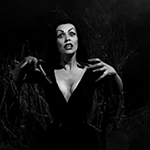Close the blinds during sleep to protect your health
Even moderate light exposure during sleep harms heart health and increases insulin resistance
Close the blinds, draw the curtains and turn off all the lights before bed. Exposure to even moderate ambient lighting during nighttime sleep, compared to sleeping in a dimly lit room, harms your cardiovascular function during sleep and increases your insulin resistance the following morning, reports a new Northwestern Medicine study.
“The results from this study demonstrate that just a single night of exposure to moderate room lighting during sleep can impair glucose and cardiovascular regulation, which are risk factors for heart disease, diabetes and metabolic syndrome,” said senior study author Dr. Phyllis Zee, chief of sleep medicine at Northwestern University Feinberg School of Medicine and a Northwestern Medicine physician. “It’s important for people to avoid or minimize the amount of light exposure during sleep.”
https://news.northwestern.edu/stories/2022/03/close-the-blinds-during-sleep-to-protect-your-health/
From the streetlights outside our bedrooms to the lamps and devices inside, sleeping with some amount of light has become a way of life for many.
That may not be such a bright idea. Research suggests that sleeping in a moderately lit room could affect metabolic and cardiovascular health compared with snoozing in a room with dimmer light.
We don’t need more sleep. We just need more darkness.
In a study published in PNAS, researchers at Northwestern University had two groups of 10 young adults sleep in differently lit rooms. One group slept in rooms with dim light for two nights; the other slept one night in a room with dim night and the next in a room with moderate overhead light — about the equivalent of an overcast day. Participants wore heart monitors at night. In the morning, they did a variety of glucose tests.
Both groups got the same amount of sleep but their bodies experienced very different nights. Both groups responded well to insulin the first night, when they both slept in dim lighting.
On the second night, however, the group sleeping in brighter lighting didn’t respond as well to insulin. The dim light sleepers’ insulin resistance scores fell about 4 percent on the second night, while the bright sleepers’ rose about 15 percent. Their heart rates were faster on the bright night, too.
The heightened heart rate and other measures led the researchers to conclude that light activates the sympathetic nervous system, which usually dominates bodily functions during the day.
Have trouble sleeping? ‘Blue light’ from devices may be to blame. There are some possible remedies.
https://www.msn.com/en-us/health/medical/sleeping-with-the-light-on-may-be-harmful-to-you/ar-AAVhLKb
Not surprising but curious if totally blind people would experience the same bad side effects or if it's related to the light interacting with the skin.
You know the difference between light and hard?
You can sleep with a light on. ![]()
![]() ffsi JR
ffsi JR



